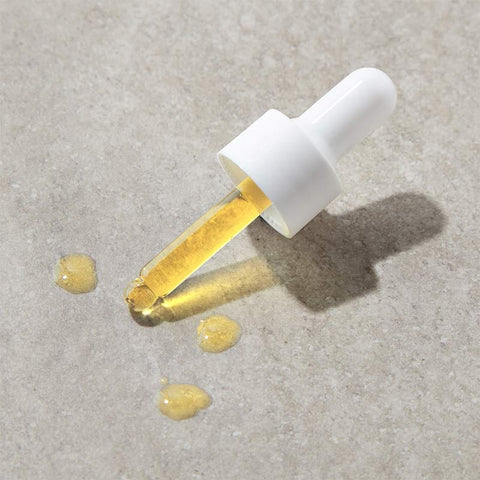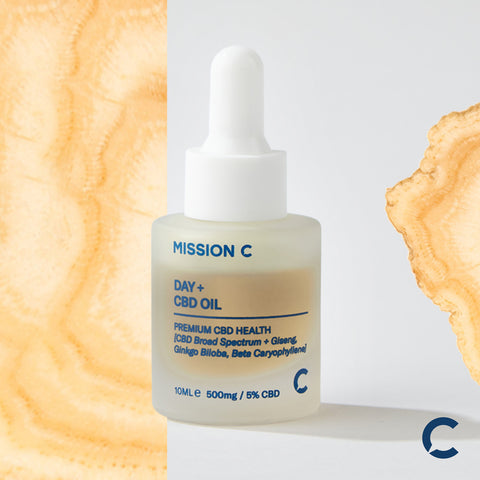Intermittent fasting is a popular diet regimen adopted by individuals looking to stay in shape and feel fantastic. The easy-to-follow method, which involves scheduled periods of fasting followed by a window of eating, often yields incredible results and works synergistically with many wellness routines.
If you’re on a quest to enhance your well-being, chances are you have tried – or are keen to try – natural CBD-enriched oil. Like intermittent fasting, cannabidiol (CBD) is celebrated for its health and wellness benefits, helping individuals treat a plethora of conditions including anxiety and depression, muscle and joint pain, skin disorders and insomnia.
CBD is commonly taken as a sublingual tincture, encompassing the cannabidiol extract and a carrier oil such as coconut-derived MCT oil. CBD oil can be taken at any time of day but is typically enjoyed first thing in the morning (to relieve anxiety, ease joint pain and boost focus) or last thing at night (to relax and enjoy better sleep). When fasting intermittently, these times often fall during a fasting period, which naturally begs the question, “will CBD oil break my fast?”
To answer this, we must first to take a closer look at the intermittent fasting process and the effects that both fasting and CBD have on the body.

What is Intermittent Fasting?
Intermittent fasting (IF) is a simple eating pattern where you cycle between periods of fasting and eating on a regular schedule to maximise the benefits of restricted calorie intake. Having risen steeply in popularity as a wellness trend within the past few years, it might seem that IF is nothing more than the latest diet fad. However, fasting has been used for centuries as a way to improve health. In fact, many religions, including Islam, Christianity, and Judaism, encourage fasting. Fasting has been shown to have numerous health benefits, including weight loss, improved mental clarity, and reduced inflammation.
By increasing the time between eating, IF encourages our bodies to burn through the calories consumed from our last meal and begin to use stored fat as its primary source of energy. This is a process called “ketosis”.
To practise IF, all you have to do is set a schedule that suits your lifestyle; you will spend several hours without eating, and during your eating window you can eat as you like. Naturally, the healthier the foods you choose, the better the impact on your health and well-being.
The Eating Window
The “eating window” is your scheduled time to eat. However, you must leave more than a few hours between your eating windows for your body to reach the fasted state; this is usually at least 12 hours.
The beauty of intermittent fasting is that there are several ways in which you can approach it. You might have heard of some of the most popular methods, such as the 5:2 approach, the 16:8 method or alternate-day fasting.

You will be required to plan a set eating window; this might be within 24 hours or over 7 days, for instance. The popular 16:8 approach describes a 16-hour fasting period accompanied by an 8-hour eating window. For example, an individual might eat between 12 pm and 8 pm, skip breakfast and night-time snacks, and fast between 8 pm and 12 pm the following day.
Alternate-day fasting is as the name suggests; fasting for one day and eating regularly the next. The 5:2 method involves fasting for two days per week (usually limiting caloric intake to 500 calories) and eating, as usual, the other five days.
Benefits of Intermittent Fasting
Research has shown that intermittent fasting provides many benefits to health and wellness. Evidence-based benefits include:
- Fat loss (including visceral fat)
- Reduced insulin resistance
- Inflammation reduction
- Improved heart health
- Mental clarity
- Antioxidant production
CBD Oil and Fasting
Some people have started using CBD oil in conjunction with intermittent fasting, but does it help?
CBD oil can actually support intermittent fasting. CBD interacts with the body’s endocannabinoid system, a cell-signalling network which regulates appetite, mood, sleep, etc. This interaction helps the body to maintain a more balanced state in terms of mood and physical health. CBD could be conducive to fasting – which is linked to feelings of discomfort such as hunger, fatigue and irritability, for instance – since it can stabilise the mood, boost energy and help you sleep.
CBD may even curb hunger pangs. According to a 2008 animal-based study, cannabidiol can inhibit the activity of ghrelin, the appetite-stimulating hormone.
Furthermore, CBD’s healing properties can promote healthy digestion. During your eating window, you’ll want to consume foods with little or no irritation during the digestive process. According to research, CBD can reduce inflammation and may be beneficial in treating conditions such as Inflammatory Bowel Disease (IBS).
Will CBD Break My Fast?
Generally, no, CBD won’t break a fast – but only as long as you stick to certain types of CBD products and avoid high doses. Intermittent fasters tend to follow the 40-50 calorie rule; consuming anything below this caloric value (such as black coffee or tea) won’t interfere with your fasted state. A small dose of CBD oil consisting of CBD and MCT carrier oil in a dropper under the tongue is unlikely to hinder ketosis, but it is important to check the label for any calorific additives such as sugar. Some CBD products, such as CBD gummies, are unlikely to be suitable to use during a fasted state due to their sugar and calorie content.
Ultimately, it depends on the type of fast that suits you. Some fasters are advocates of consuming absolutely no calories during the fasting state (so no CBD oil, coffee or tea) while others believe that 50 calorie limit works for them.
Tips for Taking CBD During Intermittent Fasting
There are a few ways in which you can optimise the IF process using CBD effectively.
- Consume calorific CBD products during your eating window
CBD products that have added sugar and/or are higher in calories, such as CBD gummies, can be enjoyed during your scheduled eating window. You may still feel the effects during the fasting window, especially with regular use of CBD, and there’s no risk of breaking your fast.
- Try sublingual CBD oil
Taking a few drops of CBD oil under the tongue during the fasting window is unlikely to break the fast. Sublingual consumption brings effective results quickly.

- Use CBD topically
CBD can also be used topically. The benefits are more localised, but this method won’t break your fast. Try CBD bath bombs for relaxation, topical CBD muscle balms or CBD moisturisers, for instance.
Final Thoughts on CBD Oil and Intermittent Fasting
If you’re looking for a diet regimen that is easily followed and offers a plethora of wellness benefits, and you have a disciplined mindset, intermittent fasting may be right for you. For some people, the concept of IF meshes well with their lifestyle, making it an attractive option. If you decide to try intermittent fasting, taking CBD oil could help facilitate your well-being journey, as outlined above.
Source: https://www.missionc.com/blogs/news/cbd-oil-and-intermittent-fasting





